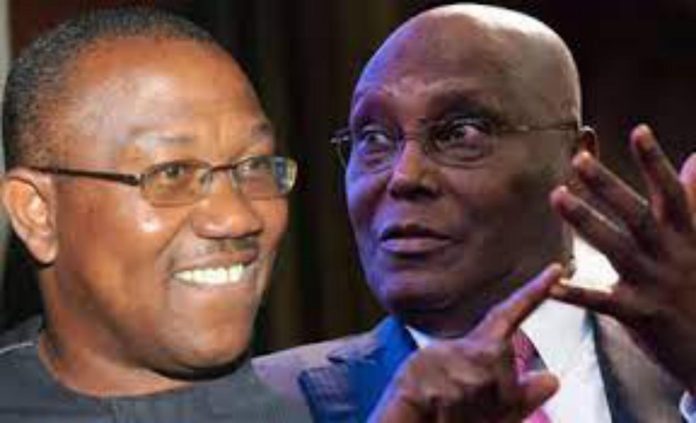After a keenly contested election campaign, and a voting process marred by voter intimidation, ballot snatching and violence, the ruling All Progressives Congress (APC) has emerged victorious. This was announced early Wednesday morning by the Chair of the Independent National Electoral Commission (INEC). However, the contest is far from over.
The candidates of the main opposition party, PDP, and that of the emergent Labour Party, have both refused to accept the outcome of the elections and have proceeded to the election petition tribunal to ask for the election to be canceled and rerun.
This has placed the judiciary in a very tricky position as they comb through the evidence present. The courts have never altered the declared outcome of a presidential election in the country’s history. The situation is more complicated by the strong showing of the APC in the legislative elections.
While the APC presidential candidate won the presidential elections with only 36.6% of the vote, the ruling party has won an outright majority in the senate and is on track to do so in the House of Representatives. The APC Presidential candidate also won the most votes in three (South-West, North-Central and North-West) out of the 6 political zones, securing at least 25% of the votes in 29 states while no other candidate cleared the required 24 states threshold.
But there is mass discontent with the conduct of the elections and this puts the judiciary in a tight spot because upholding the results could spark violence given the general dissatisfaction of Nigerians. The ruling class is scrambling to prop up the legitimacy of the system and with good reason, the 25 February elections saw the lowest voter turnout in Nigerian history.
It may prove especially difficult for the opposition parties to convince the tribunal that enough rigging happened to have affected the outcome of the elections. And while the tribunal will be hard pressed to declare another winner, calling for a rerun will be just as big a problem. The elections cost a budgeted N305 billion and took years of preparation.
Unsurprisingly, the electoral commission is not being cooperative with the opposition parties. Last Friday, the Court of Appeal in Abuja granted the candidates of the PDP and LP access to all sensitive materials used in the national assembly and presidential elections. But INEC challenged this in court, arguing that it needs to reconfigure the BVAS machines in preparation for the state elections that was earlier scheduled for Saturday 11 March.
The court ruling on Wednesday 8 March for the parties contesting the elections to have access to the BVAS backend led to the postponement of the state assemblies and gubernatorial elections by a week to 18 March.
The opposition has also taken the case to the streets, well guarded by security services personnel who usually crackdown on protests by radical forces. The PDP presidential candidate, Atiku Abubakar, and the national chairman of the party, Iyorchia Ayu, led a genteel protest to the INEC headquarters in Abuja. A display that drew the ire of the president-elect, Bola Ahmed Tinubu, who lashed out saying the opposition party never had a chance of winning the elections and should stop causing traffic jams in the nation’s capital.
It is undeniable that the elections have redrawn the electoral maps. Ahead of state elections, the capitalist parties scramble to secure alliances to bolster their chances at victory. The Labour Party in Adamawa state has collapsed its structure for and endorsed the APC gubernatorial candidate in the state, Senator Aisha Dahiru Binani. In Kaduna several opposition parties have endorsed the candidate of the PDP. In Rivers State, the APC has collapsed structure for the PDP to reciprocate Governor Wike’s endorsement of the APC presidential candidate that eventually saw the APC win a controversial and disputed victory in the Presidential elections in Rivers state. In Oyo state, the Labour Party chairman declared that the party will be supporting the incumbent PDP governor, Seyi Makinde, who is seeking reelection. A move that the Labour Party gubernatorial candidate, Tawfiq Akinwale, has kicked against.
But ahead of the state polls, Nigerians remain doubtful that the electoral commission would conduct free, fair and credible elections. It is expected that this might serve to further diminish turnout.
Already, only about a quarter of Nigerians participate in the electoral process, calling into question the legitimacy of the emergent government. In a country of more than 200 million people and 93 million registered voters, someone who wins less than 9 million votes cannot seriously claim to have a mandate to govern.
Even as the presidential election is battled out in court, one thing is clear: Nigerians have overwhelmingly lost faith in and rejected the system, and will only do so in higher numbers as more and more elections are marred by malfeasance and the government continues to abdicate its responsibility to ensure the welfare of the Nigerian people.
by Kayode Somtochukwu ANI









